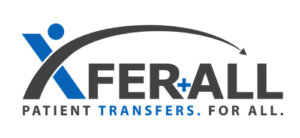
While emergency department (ED) visits for other medical causes that affect children declined in the early stages of the pandemic, the number of children’s mental health-related ED visits rose 24% among 5- to 11-year-olds. It also surged 31% among 12- to 17-year-olds in April 2020 through October, compared to that period in 2019, according to a November Centers for Disease Control and Prevention report. During the pandemic we also saw a rise in ED visits for suspected suicide attempts among young people. Among teen girls, such visits were up 51% from February to March earlier this year compared to 2019, according to a June CDC report. These are staggering experiences facing youth and children today. Complicating these situations even more is the difficult experience of accessing care when crisis care is needed.
Most children and adolescents experiencing a behavioral health crisis wait hours or even days for placement in clinically appropriate therapeutic treatment. One study documents an average length of stay in the hospital emergency department for psychiatric admissions of 18 hours, compared to 5 hours for non-psychiatric admissions.1 Others have estimated average boarding times of between 6.8 hours and 34 hours for patients needing psychiatric treatment.2,3 Children’s hospitals reportedly saw a 45 percent increase in pediatric self-injury and suicide cases between January and July 2021. In 2020, pediatric mental health-related hospital emergency department visits increased 24% for children ages 5-11 and 31% for older children and adolescents.
“Extended ED boarding is detrimental for children and adolescents with behavioral health issues,” said Jennifer Wolff, PhD, an associate professor of psychiatry and human behavior at the Warren Alpert Medical School of Brown University, a staff psychologist at Rhode Island Hospital and Bradley hospitals, and the director of the Adolescent Mental Health Collaborative at Brown.
Dr. Wolff and her colleagues found a threefold increase in the number of pediatric patients who boarded in their children’s hospital ED over the past three years and a 60% increase in the average time spent boarding in the ED. (Adm Policy Ment Health. 2023 Jan;1; https://bit.ly/3KaUqJ0.)
Dr. Wolff said care delayed further can also exacerbate existing problems. “For some of these kids who have really chronic psychopathology and are going to need long-term care, we run the risk of them having a negative experience that is so detrimental that it is a deterrent to them seeking care later on,” she said. “People are becoming aware that the system is broken and that we need to do more to serve these kids, but I wish there was more help coming faster.”
In August of 2023, American Academy of Pediatrics published a The Management of Children and Youth with Pediatric Mental and Behavioral Health Emergencies with Recommendations for Optimizing and Improving Care of Pediatric Patients with Mental Health Emergencies which included referral networks and the use of technologies to improve care coordination which is where XFERALL helps.
XFERALL’s mission is to drastically save time for clinical staff and reduce the amount of time patients spend in EDs waiting for a transfer to the most appropriate care center by applying innovative technology solutions. XFERALL enables real-time communication so that clinicians needing to place a patient can request placement at as few or as many facilities as they choose; receive responses from facilities or programs that can accept and treat the patient; and share clinical information — all within minutes from a single source.
This coordinated approach allows caregivers and patients to be engaged in the decision-making process. In states that have adopted XFERALL, finding placement for youth and children went from multiple hours or days to sixty minutes or less on average. In just a matter of minutes, providers can coordinate and provide options for families seeking care for their child.
XFERALL partners with health systems, mental health crisis teams and healthcare providers across the nation to expedite access to care for children and adolescents experiencing a mental health crisis. In July of 2023, the median time to secure placement on the XFERALL network was 36 minutes. XFERALL is available nationwide and continues to expand with the mission of driving quality improvement through expediting access to care. To learn more about this program and how it can support improving access for youth in crisis visit us ici.
Sources:
1 Nicks BA, Manthey DM. The impact of psychiatric patient boarding in emergency departments. Emerg Med Int 2012; 2012: 360308.
2 Weiss AP, Chang G, Rauch SL, et al. Patient and practice-related determinants of emergency department length of stay for patients with psychiatric illness. Ann Emerg Med. 2012;60(2):162–71.
3 Tuttle GA. Access to psychiatric beds and impact on emergency medicine. Chicago, IL: Council on Medical Service, American Medical Association; 2008.
4 Pediatricians, Child and Adolescent Psychiatrists and Children’s Hospitals Declare National Emergency in Children’s Mental Health, October 19, 2021.







